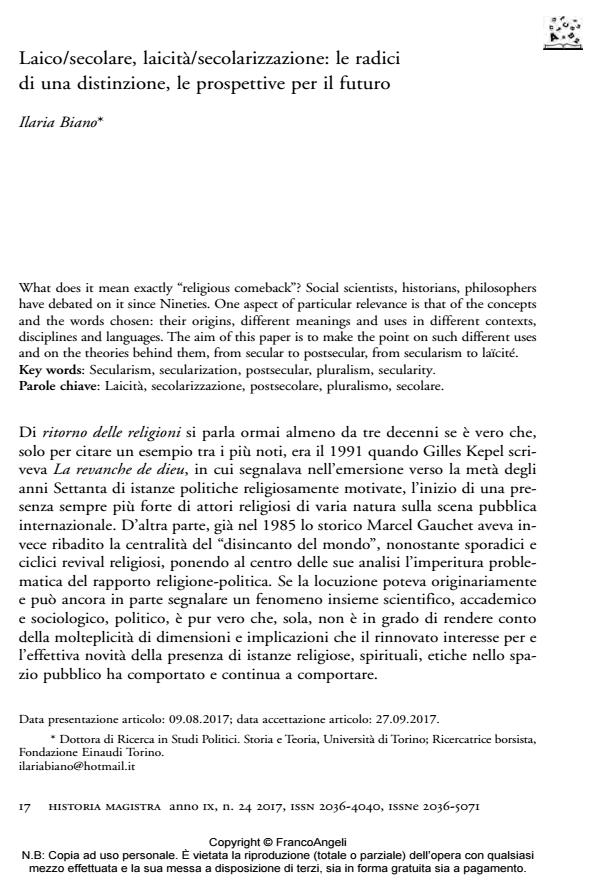Laico/secolare, laicità/secolarizzazione: le radici di una distinzione, le prospettive per il futuro
Journal title HISTORIA MAGISTRA
Author/s Ilaria Biano
Publishing Year 2017 Issue 2017/24
Language Italian Pages 19 P. 17-35 File size 120 KB
DOI 10.3280/HM2017-024003
DOI is like a bar code for intellectual property: to have more infomation
click here
Below, you can see the article first page
If you want to buy this article in PDF format, you can do it, following the instructions to buy download credits

FrancoAngeli is member of Publishers International Linking Association, Inc (PILA), a not-for-profit association which run the CrossRef service enabling links to and from online scholarly content.
What does it mean exactly "religious comeback"? Social scientists, historians, philosophers have debated on it since Nineties. One aspect of particular relevance is that of the concepts and the words chosen: their origins, different meanings and uses in different contexts, disciplines and languages. The aim of this paper is to make the point on such different uses and on the theories behind them, from secular to postsecular, from secularism to laïcité.
Keywords: Secularism, secularization, postsecular, pluralism, secularity.
Ilaria Biano, Laico/secolare, laicità/secolarizzazione: le radici di una distinzione, le prospettive per il futuro in "HISTORIA MAGISTRA" 24/2017, pp 17-35, DOI: 10.3280/HM2017-024003